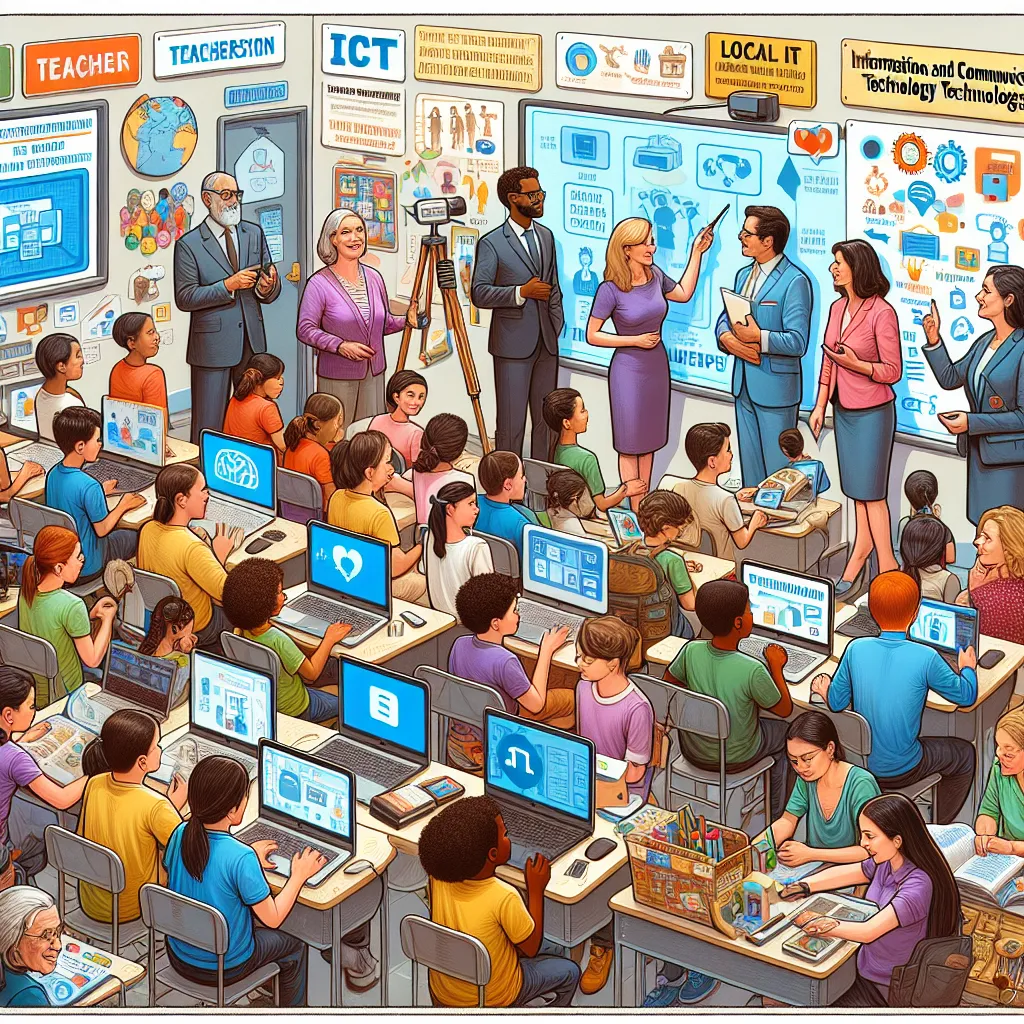Ask AI on The Internet
Question: As a prospective educator or concerned individual, propose three actionable steps that you can take to contribute to the integration of ICTs in South African schools. Explain how these actions could positively impact the educational landscape.
Integrating Information and Communication Technologies (ICTs) in South African schools offers significant potential to enhance education. Here are three actionable steps you can take to contribute to this integration, along with explanations of their potential positive impacts: ### 1. Advocate for and Help Establish ICT Infrastructure **Action:** Partner with local businesses, tech companies, NGOs, and community leaders to secure funding and resources for ICT infrastructure in schools. This could involve donations of hardware (computers, tablets, smartboards), software (educational programs, licenses), and connectivity solutions (Wi-Fi, broadband access). **Impact:** - **Enhanced Access to Learning Resources:** Modern ICT infrastructure enables students to access a vast array of digital learning materials, online courses, and interactive content, making learning more engaging and comprehensive. - **Reduced Inequality:** Providing ICT resources in underprivileged schools can help bridge the digital divide, giving all students equal opportunities to benefit from modern education tools. - **Teacher Empowerment:** Access to ICT resources allows teachers to incorporate innovative teaching methods, improving lesson delivery and overall teaching efficacy. ### 2. Facilitate Professional Development for Educators **Action:** Organize or support professional development programs focused on ICT integration for teachers. This could include workshops, training sessions, or online courses that help teachers effectively use technology in their classrooms. **Impact:** - **Improved Teaching Quality:** Teachers equipped with ICT skills can better engage students through diverse and interactive educational tools, enhancing the overall quality of education. - **Confidence and Competence:** Continuous professional development ensures that educators remain confident and competent in using new technologies, which can lead to improved student outcomes. - **Innovative Teaching Strategies:** Educators trained in ICT can adopt and apply innovative teaching strategies, such as flipped classrooms and blended learning, enhancing the learning experience. ### 3. Develop and Implement Community-Based ICT Programs **Action:** Create community-based programs that involve students, parents, and community members in ICT-related activities and projects. This could include after-school coding clubs, digital literacy workshops, or community tech hubs. **Impact:** - **Strengthened Community Engagement:** Community-based ICT programs foster a culture of learning and collaboration, strengthening bonds between schools and communities. - **Enhanced Digital Literacy:** By extending learning opportunities beyond the classroom, these programs help improve digital literacy among students and community members alike. - **Preparation for Future Challenges:** ICT programs can equip students with critical digital skills, preparing them for future academic pursuits and career opportunities in a technology-driven world. ### Conclusion By focusing on infrastructure, professional development, and community engagement, you can make a meaningful contribution to the integration of ICTs in South African schools. These steps help create a more equitable, engaging, and forward-thinking educational landscape, ultimately benefiting students, teachers, and the broader community.
Think your answer is better than the AI's? Post it below.
Other Most Relevant Posts:
 1. Enhancing Educators Through Continuous ICT Development
2. Partnerships Enhancing ICT Support in South African Schools
3. Successful ICT Implementation in South African Schools
4. Steps to Enha
1. Enhancing Educators Through Continuous ICT Development
2. Partnerships Enhancing ICT Support in South African Schools
3. Successful ICT Implementation in South African Schools
4. Steps to Enha
 Challenges of ICT Integration in South African Schools: Infrastructure, Training, and Resource Allocation
Challenges of ICT Integration in South African Schools: Infrastructure, Training, and Resource Allocation
If you want your question answered by an AI, click here.





Post your own comment: